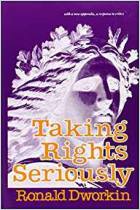Join getAbstract to access the summary!

Join getAbstract to access the summary!
John Rawls
A Theory of Justice
Harvard UP, 2005
What's inside?
John Rawls’s landmark treatise transformed 20th-century political philosophy – and politics around the world.
Recommendation
John Rawls’s landmark 1971 treatise transformed political philosophy by offering a systematic alternative to the utilitarianism that had dominated the field for more than a century. By turning the focus of political philosophy to the welfare of the least advantaged – while offering a bold argument for the inviolability of fundamental civil and political rights – Rawls influenced the thinking of generations of philosophers, lawyers and legislators. Closely reasoned, dense, often technical but brightened by the warmth of Rawls’s compassion and the brilliance of his intellect, A Theory of Justice belongs on the required reading list of every student of law, politics or philosophy.
Summary
About the Author
John Rawls (1921–2002) was an influential American moral and political philosopher. He taught at Harvard University for more than 30 years.

















Comment on this summary
Please look for my email reply that I will send to you directly regarding our monthly subscription rates. In addition, I would be interested in finding out where you located that cost, as our Monthly subscriptions are available at a much lower cost.